Students and trainees present a broad range of projects in global health at annual showcase.
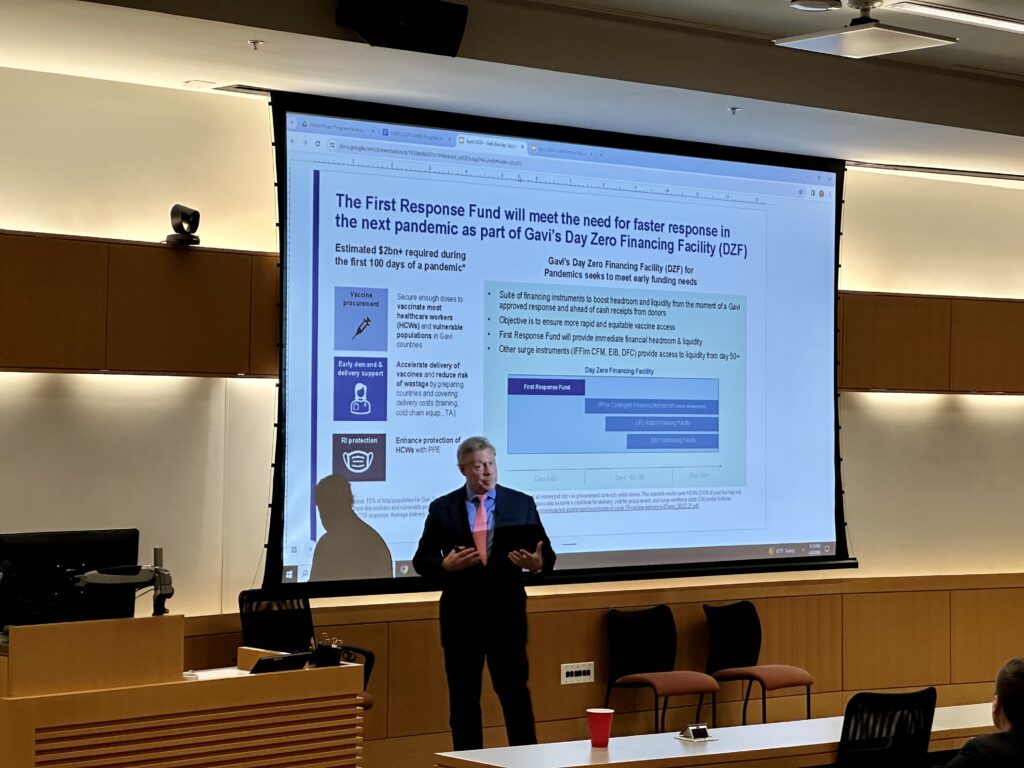 Students and trainees from across Brown’s campus gathered at The Warren Alpert Medical School on April 8 to showcase research and other projects focused on global health as part of the annual Global Health Research Day. The Global Health Initiative has hosted the event since 2010, which provides a forum for students to connect with their peers and faculty members while spotlighting global health projects across a variety of disciplines.
Students and trainees from across Brown’s campus gathered at The Warren Alpert Medical School on April 8 to showcase research and other projects focused on global health as part of the annual Global Health Research Day. The Global Health Initiative has hosted the event since 2010, which provides a forum for students to connect with their peers and faculty members while spotlighting global health projects across a variety of disciplines.
“Global Health Research Day is a wonderful opportunity to showcase the amazing work that our students and trainees are doing around the world in collaboration with Brown faculty and their international partners,” Adam Levine, MD, MPH, director of Brown’s Global Health Initiative, says. “It’s also an opportunity to bring together global health researchers and teachers from across BioMed to help build new interdisciplinary collaborations.”
Seth F. Berkley ’78 MD’81, P’27MD’31, senior adviser to the Brown University Pandemic Center and longtime leader in worldwide efforts to expand vaccination access, spoke about issues of scale and equity in global health at this year’s keynote address. Mukesh K. Jain, MD, dean of medicine and biological sciences, and Levine presented the inaugural Susan Cu-Uvin Global Health Leadership Award to Professor of Obstetrics and Gynecology Susan Cu-Uvin, director of the Providence/Boston Center for AIDS Research Leadership Committee.
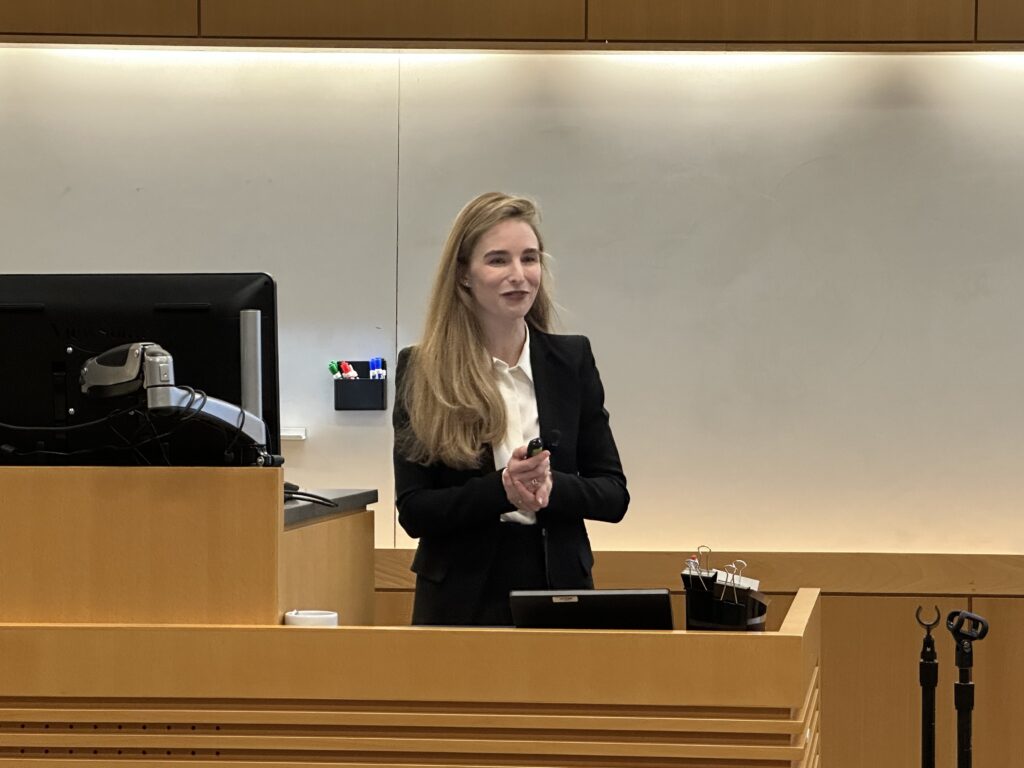 Levine presented Calli Dogon F’22, MD, with the Best Global Health Abstract, the top prize of the day. Juliet Fang ’26 MD’30 earned second place honors, and Sarah Nuss MD’24 took third place. Dogon gave a short talk on her research, on the cardiometabolic health of HIV-exposed but unaffected (HEU) children in her home country of South Africa. The study proposes that additional factors during pregnancy, such as maternal lipid panels, may influence cardiometabolic health.
Levine presented Calli Dogon F’22, MD, with the Best Global Health Abstract, the top prize of the day. Juliet Fang ’26 MD’30 earned second place honors, and Sarah Nuss MD’24 took third place. Dogon gave a short talk on her research, on the cardiometabolic health of HIV-exposed but unaffected (HEU) children in her home country of South Africa. The study proposes that additional factors during pregnancy, such as maternal lipid panels, may influence cardiometabolic health.
“With 15 million HIV-exposed but unaffected children globally, and 1.5 million HEU children born annually, there is a great global health importance in prioritizing research for this vulnerable group in order to recognize the risk factors and then develop interventions to mitigate them,” Dogon says.
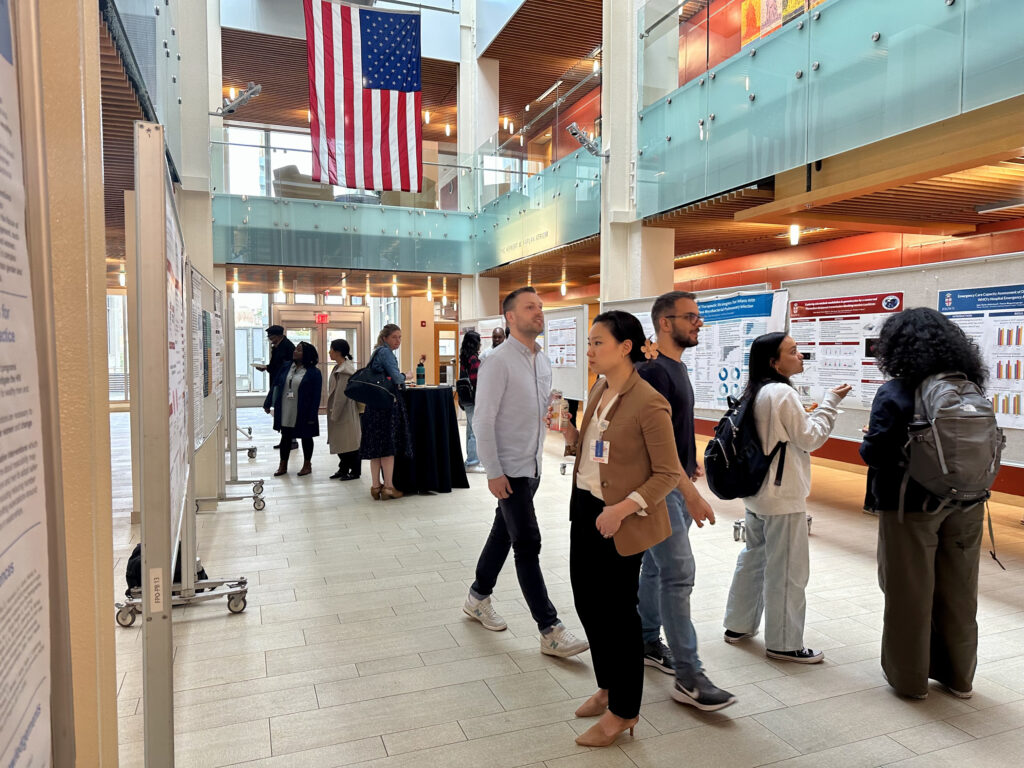 Thirty undergraduate, graduate, and medical students, residents, and fellows exhibited their research in the atrium of the Medical School during the poster presentation.
Thirty undergraduate, graduate, and medical students, residents, and fellows exhibited their research in the atrium of the Medical School during the poster presentation.
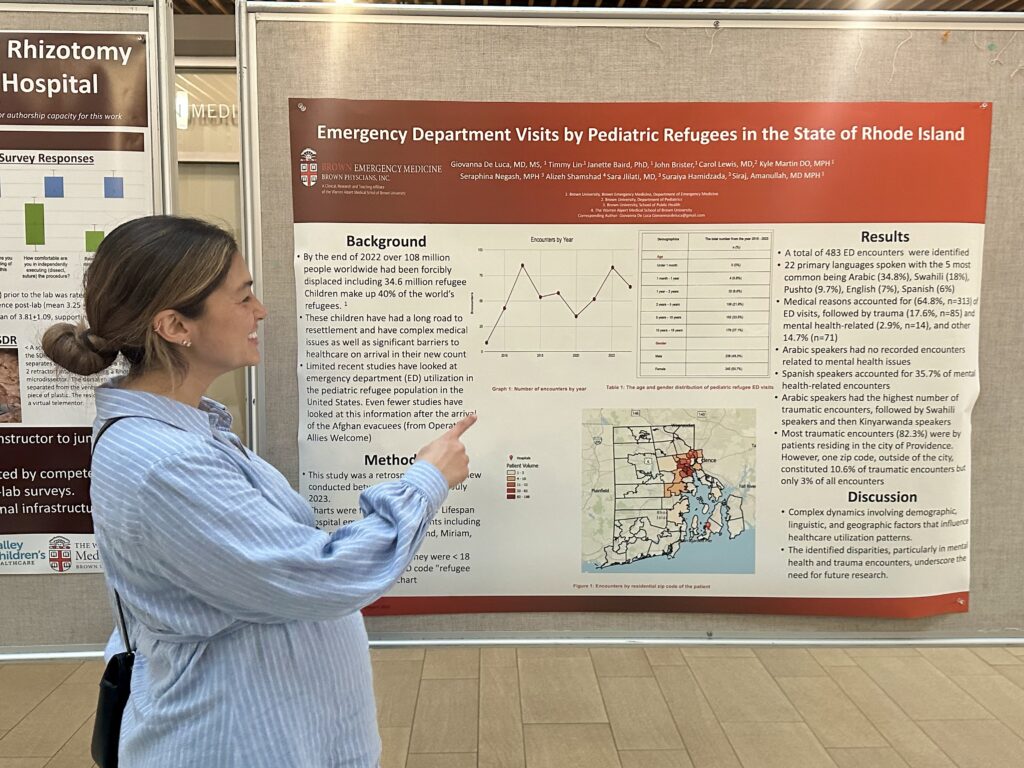
Giovanna De Luca, MD, MS, a global emergency medicine fellow, explains her study, Emergency Department Visits by Pediatric Refugees in the State of Rhode Island. The research reviewed charts conducted between April 2015 and July 2023 from Lifespan hospital emergency departments. It identified 483 visits from refugee patients under 18 years old, who spoke 22 different languages. The study demonstrated the complexities with demographics, linguistics, and geographic factors that influence health care patterns.
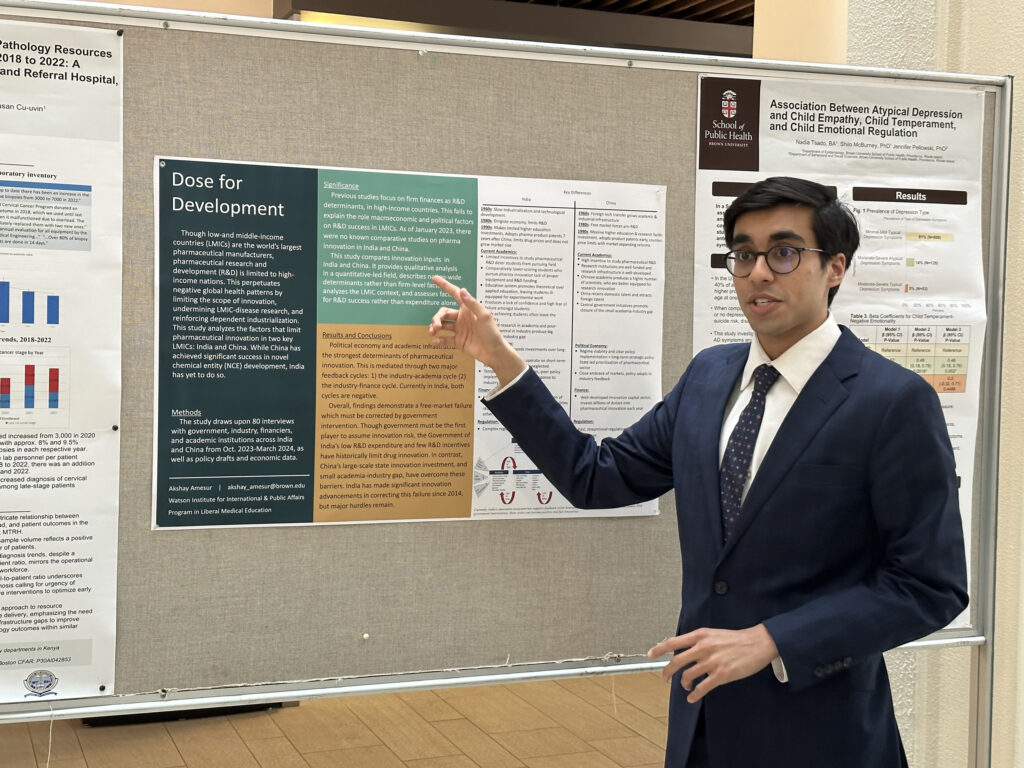
Research by Akshay Amesur ’24 MD’28, titled Dose for Development, focused on factors that have limited pharmaceutical innovation in India and China, two key low- and middle-income countries and the world’s largest pharmaceutical manufacturers. Amesur showed that political economy and academic infrastructure were the strongest determinants of pharmaceutical innovation, and that government intervention must take on risks with funding research and development expenditures and incentives to foster advancements in drug innovation.




